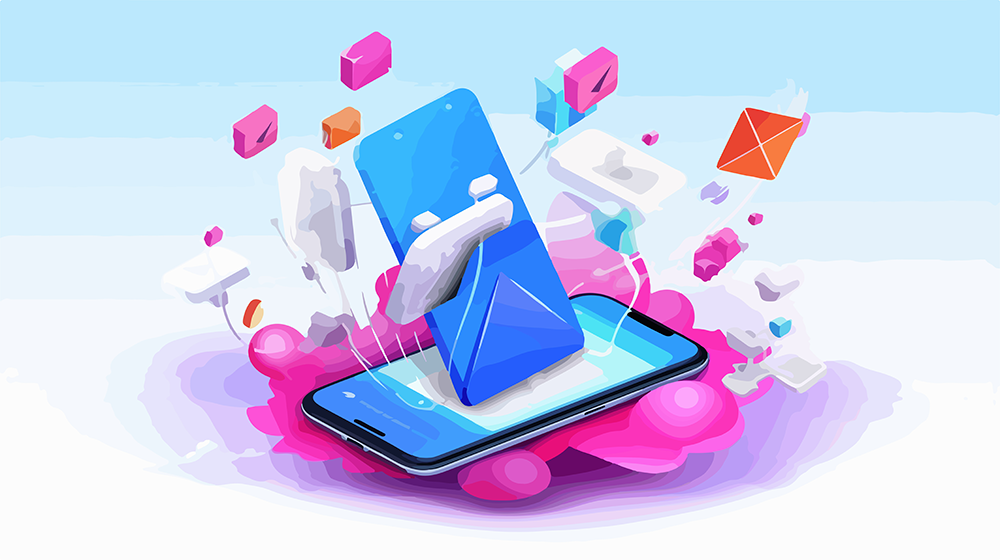Table of Contents Show
Definition of Customer Loyalty
Customer loyalty signifies the profound bond between customers and a specific brand, product, or service. It transcends mere repeat purchases, encompassing trust, advocacy, and the willingness to recommend the brand to others, thus becoming fervent brand ambassadors.
Customer loyalty is underpinned by four critical elements:
- Trust: Dependable products and transparent practices cultivate customer trust.
- Satisfaction: Exceptional customer experience ensures repeat business.
- Engagement: Brands that emotionally connect with their audience witness higher loyalty.
- Value: Consistently delivering quality and rewards fortifies customer relationships.
The Importance of Customer Loyalty for Businesses
In recent years, the proliferation of cross-border shopping platforms has provided customers with more shopping channels and a diverse range of product choices. Consequently, building and maintaining customer loyalty is crucial for sustainable revenue growth for businesses and solo entrepreneurs to survive and thrive in today’s volatile market. Why?

Positive Support from Loyal Customers:
Successfully cultivating brand loyalty means that loyal customers tend to spend more and shop more frequently than new customers.
They also help introduce the brand to other potential customers, leading to more stable revenue and reduced costs for acquiring new customers.
Reduced Marketing Costs for New Customer Acquisition:
Marketing to existing customers is always easier and more cost-effective than finding new ones. Moreover, the conversion rate (CR) of loyal customers is significantly higher, ranging from 60% to 70%, compared to just 5% to 20% for new customers.
This helps businesses reduce customer acquisition costs (CAC) and increase revenue.
Creating a Competitive Advantage:
Loyal customers are the most enthusiastic supporters of a brand, helping businesses build credibility and reputation in the market. Loyalty often outweighs price, product, or promotions when making purchasing decisions.
According to Sprout Social, 57% of customers who feel deeply connected to a brand will increase their spending with that brand, while 76% will choose that brand over competitors.
Enhancing Quality and Service:
Loyal customers provide valuable insights into products and services, helping businesses identify areas for improvement. Their feedback is more valuable than surveys, market research, or internal discussions.
As long as your product meets their needs, expectations, and solves their problems, you can be confident that you are on the right track in building customer loyalty, thereby optimizing costs and contributing to stable, sustainable revenue growth.
Six Types of Customer Loyalty
- Emotional Loyalty: Foster deep connections with customers through exceptional service, meaningful engagement, and trust-building.
- Advocacy Loyalty: Encourage brand advocacy by empowering customers to share positive experiences and refer others.
- Transactional Loyalty: Drive repeat purchases through loyalty programs that offer exclusive benefits and personalized rewards.
- Social Loyalty: Reward customers for sharing their experiences and recommending your brand on social media.
- Engagement Loyalty: Engage customers actively by monitoring interactions and delivering relevant content.
- Behavioral Loyalty: Analyze customer behavior data to identify patterns and optimize marketing strategies.

How to Build Customer Loyalty
Building customer loyalty for products/services is a crucial strategy for businesses. Programs are designed to attract customers to return and use the service/product repeatedly. Some ways to build customer loyalty include:
Increasing Customer Engagement:
You can engage with customers through services like reward points accumulation. Many businesses have successfully used chatbots to proactively interact and send messages to customers, such as:
- Sending thank you notes and follow-ups after using the service/product.
- Providing order tracking services.
- Sending discount codes, promotional programs, and inviting membership registration for benefits.
Statistics show that about 64% of customers return to use products mainly due to post-purchase interaction and care from the business.
Providing Real Experiences for Customers:
Real experiences significantly influence customers’ purchasing decisions. There are four types of customer experiences that many businesses focus on developing:
- Interactive Experience: Consulting and customer care on both online and offline channels.
- Product Experience: Creating product utility according to customer needs.
- Brand Awareness: Building customer trust in a large and reputable brand.
- Pricing: Targeting customer segments with the ability to pay and making them aware that price corresponds with product quality.
Maintaining Brand Consistency:
Brand consistency is crucial as it imprints on customers’ minds. The brand creates the product’s name and attracts customers to return. Therefore, businesses invest in brand development by building messages and images. Creating blogs, and groups to share benefits and product usage guides is also a way to enhance the brand. The more customers explore and share about your product, the more they love and want to become your “hardcore fans.”
Building Customer Loyalty with Exclusive Member Privileges:
Creating exclusive privileges for loyal customers is an effective way to retain them. Many large businesses like Grab and Momo have succeeded with this strategy. These programs help businesses increase competitiveness and attract customers. Other methods to retain customers include investing in brand recognition, segmenting customers for better service, and creating unique value for customers.
Loyal customers play a crucial role in business development. Retaining loyal customers is a challenging task that requires high-quality products/services, reasonable prices, and effective post-purchase customer care.
Final Words
To build customer loyalty, it is essential to respect customers and show that respect through all forms of communication and service. When you treat customers as important individuals and interact with them sincerely, they will feel valued and be willing to remain loyal to your brand.








